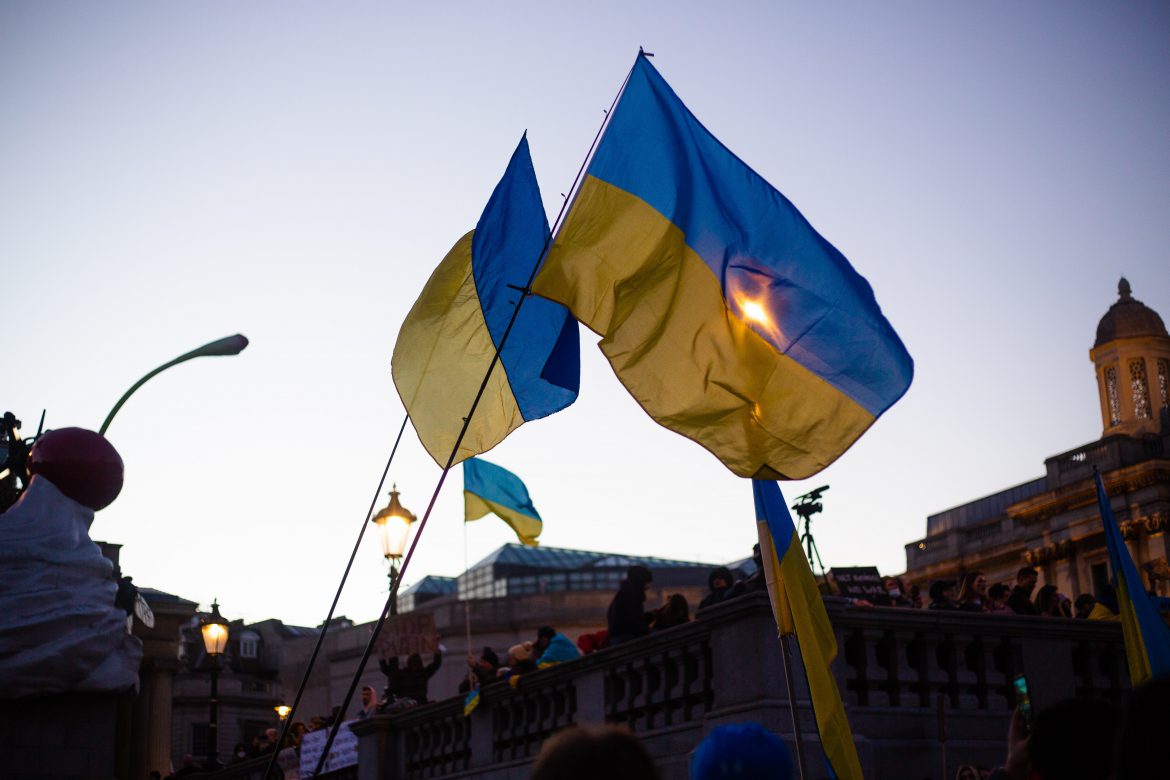The following article was originally published at Young Voices Europe.
We have almost reached the ninth month of conflict in Ukraine since the Russian invasion of February 24, 2022. The alleged initial plan by Putin to either conquer the whole of Ukraine or subvert the Ukrainian political order toward a more friendly leadership was met with harsh resistance and international opposition. As a result, Russia’s military objectives have been resized to those oblasts with significant Russian-speaking population (Donetsk and Lugansk) with the addition of the two oblasts that connect them to Crimea (Kherson and Zaporizhzhya).
Now, we are in a stage where the international pressure against Russia is leaving an impact, and Ukraine is fighting back fiercely and seemingly gaining territory back day by day. In this stalemate situation, tensions are rising from both sides. Amid reciprocal accusations and swinging moods toward future peace talks, threats of escalation have been thrown back and forth from both sides of the Atlantic. In particular, Putin’s decision to annex the above mentioned oblasts through referendums has been taken to imply that any attack to regain that territory by the Ukrainian forces could potentially trigger Russia’s new defence policy – stating that any conventional or non-conventional attack that may threaten the very existence of the Russian country can be retaliated by the use of nuclear weapons.
In a burning hiatus of the war, so to speak, political scientists and the media are racing to find what could be the final solution to this state of affairs. Much has been said and done about the present situation on the battlefield and the resulting political alliances, and yet very little about what the content of future peace talks might be. Putin has stated clearly that Russia sees as an unnegotiable objective that they get to keep the occupied territories with a relevant Russian-speaking presence and that they receive guarantees that Ukraine will transition to a more neutral stance on the geopolitical scene. On the other hand, Zelensky has firmly refused to conduct any peace talks while Putin is in power and while Russian troops are present in any piece of Ukrainian land as per the 1991 declaration of independence; moreover, Zelensky at this point sees participation in NATO and in the EU as unnegotiable guarantees against Russia.
These pretences are plainly contradictory. Hence the suggestion by journalists and politicians everywhere in the West is invariably to give unconditional support to the Ukrainian army until the Russian invasion is completely repelled. While it is plausible that Ukraine cannot safely afford to lose territories as a guarantee to its future existence, and to deter Russia from ever trying new military campaigns of this sort in the future, is this scenario realistic? That is, is it realistic that Russia could ever accept to lose the war completely and just retreat and call its special military operation an error and a failure?
Of course, Putin cannot afford to lose at this point. Both personally – as the state of Russia’s institutions could not easily spare his life in the event of a disastrous defeat – and geopolitically – as a total retreat would definitely turn Russia into a failed pariah country. It does not seem equally easy to foresee a future in which the largest country in the world, and the one with the largest military arsenal in the world, is just isolated geopolitically like North Korea or Iran. If this comes to pass, Russia’s too-big-to-fail situation could realistically mean that there is a red line somewhere, after which Putin’s only possible answer to further resistance will be kickstarting a nuclear world war, as the only alternative to absolute defeat. He may be bluffing right now, but for how long can we push Russia down before Putin is actually forced to stop bluffing and finally get to action?
What is missing from the political debate in Europe, and in the West in general, is an investigation of what we want to see when the war will be over. How will the conflict cease? While both Ukraine and Russia cannot afford to be the first to step back and seek an agreement, Europeans ought to ask themselves a question: how far can we afford to go with this? Mindless warmongering, even against evil and aggression, must be faced with reality at some point. And an end to this war must be found quickly and, above all, realistically, for peace to be sustainable in the future. Most probably, Europe and the West do not want any resolution to this war in which Russia is ultimately prevented from being reintegrated into the international order forever. What should peace look like, not from the point of view of Ukraine but from that of the West?
